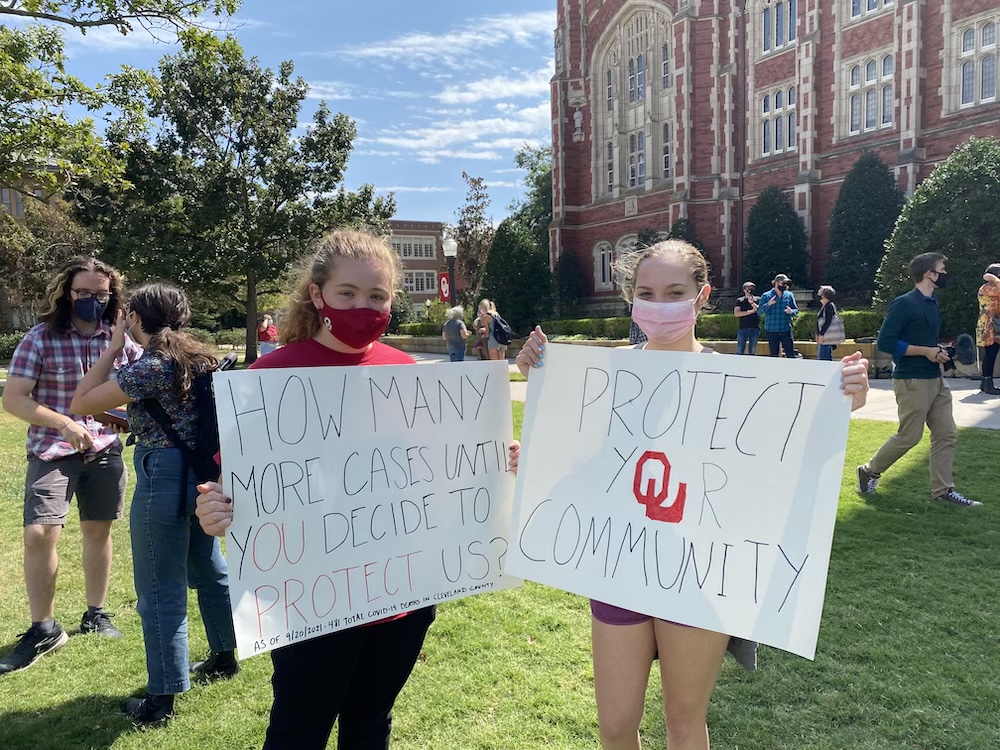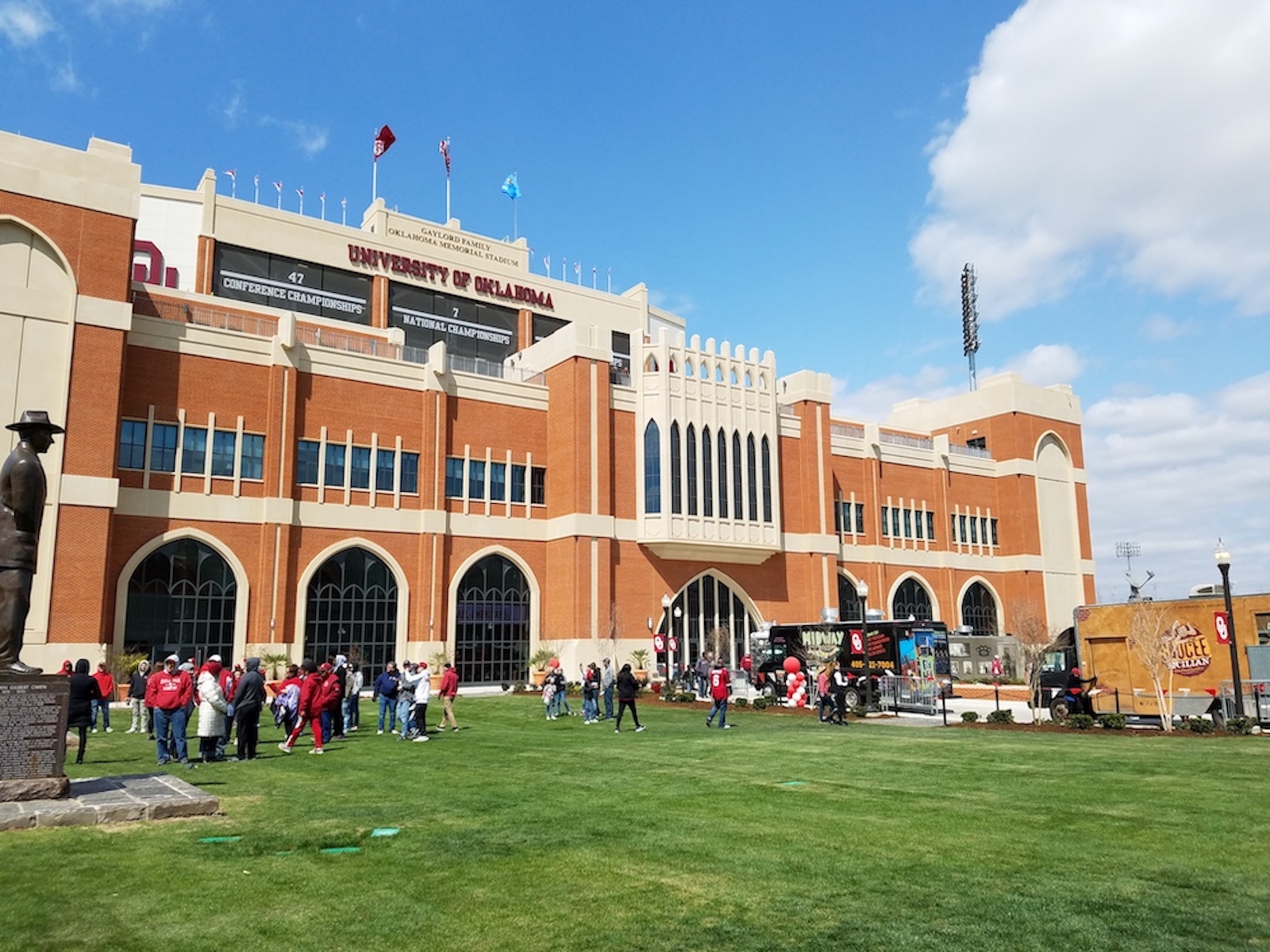Going back to school in person this year was a big deal for many people. This brought different emotions for different people – joy to spend more time with friends, relief at not having to attend zoom classes every day, and fear of the continued spread of the COVID-19 virus. In the time since we have been back on campus, over a month by now, it’s common to know someone who has gotten sick since move-in.
We can’t wish the pandemic away. Students and faculty have been calling on the university to do more when it comes to protecting campus. This was emphasized with the OU Days of Action that took place on Monday and Tuesday. Some professors canceled classes or moved them online, and some students made the choice not to attend class in solidarity with the cause.
The University of Oklahoma Chapter of the American Association of University Professors has an Open Letter detailing requests for changes in OU’s pandemic policy (1). These include mandatory vaccines for everyone on campus, a mask mandate for public indoor spaces, and standing up to the state legislation that prohibits these actions; further requests include greater options for working and learning remotely, as well as hazard pay for faculty (3).
Not everyone felt the widespread effect of the Days of Action. I only had one elective class canceled between the two days. I did, however, join my Informed Citizens Discussion Group in observing the protest held outside Evans Hall on Tuesday afternoon.
There was a short speech going on when my group arrived. The speaker talked about the University’s responsibility to take a firm leadership stance on pandemic issues.
“The governor has no say in what happens at OU sporting events or in OU classrooms,” he announced. He explained that these decisions fall instead to the university’s Board of Regents.
“OU is tying its own hands.”
I am not sure what I expected from the protest, but the reality was a calm, respectful event with mostly adults, a handful of students, and a few small signs. The purpose seemed to be to give people the opportunity to participate in a discussion of their COVID-19 experiences. Organizers of the event encouraged everyone to step up and share these stories in letters to the OU Board of Regents.
Interestingly, the event brought out a few counter-protestors. One student had a sign that read “Vaccination passports are pro-segregation”. A reporter stepped up to interview him, and a history professor came over to engage in a calm debate.
There were also signs in support of the protest. Many professors held posters that read “our leadership fails us on workplace safety”. I also got to talk to two students, both named Emily, who had brought homemade signs.

One of the Emilys explained to me that she came not only because she is a student, but because her mom is a professor.
“The university isn’t doing anything to protect us, and that’s not fair,” she told me.
When I asked what they wanted the university to do differently, Emily said she would like to see an indoor mask mandate as well as a vaccine mandate, respecting medical exemptions.
The other Emily said that though she supported the cause, she had not walked out on any of her classes. She shared her belief that boycotting class “falls on faculty to cancel, even though it’s important to students, too.” Nevertheless, she took the time to be a part of the protest between classes.
The overall attitude of the protest was one of support and sincerity. It was held to make a statement and rally support. However, it also provided an opportunity for those struggling to come together to have their experiences validated.
Whether or not you agree with the requests of the protestors, this attitude of support and genuine concern for others is vital to our community here at OU. If you have not already, take time to listen to what those around you are going through. Just as the university has stated in their COVID-19 policy, we are in this together. Hopefully, the efforts of the protestors will result in a greater attitude of compassion across all of campus.
Sources:
The University of Oklahoma Chapter of the American Association of University Professors. “Open Letter to University Decision-Makers.” 11 Aug 2021.
The University of Oklahoma. “OU Together.” OU Together, www.ou.edu/together. Accessed 23 September 2021

